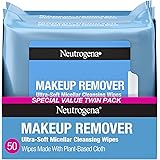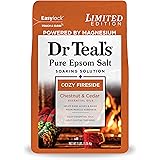Imagine a scenario: a young person, perhaps influenced by the flawless images seen daily on social media, dreams of enhancing their appearance. They stumble upon an advertisement for a quick, affordable cosmetic procedure, promising miraculous results with little to no downtime. The temptation to achieve that ‘perfect’ look easily can be incredibly strong, much like choosing a seemingly faster, unmarked path through dense woods. However, as the news from Karnataka highlighted in the accompanying video tragically illustrates, that tempting shortcut can often lead to a perilous dead end, leaving individuals scarred, both physically and emotionally, and sometimes even costing lives.
The horrifying truth about unregulated clinics offering various beauty procedures, or what might be described as ‘botched beauty procedures,’ has recently been brought to light in Karnataka. A concerning trend of medical nightmares emerging from these facilities has forced the government to act decisively. This comprehensive crackdown serves as a critical reminder that while the pursuit of aesthetic enhancement is personal, the safety standards governing such treatments are universal and non-negotiable.
The Dark Side of Cosmetic Aspirations: Unregulated Cosmetic Clinics
The allure of cosmetic treatments, from skin rejuvenation to more invasive fat reduction surgeries, often overshadows the inherent medical risks involved. Unfortunately, in numerous instances across Karnataka, these cosmetic aspirations were transformed into devastating realities. A particularly grim example, mentioned in the video, involved the tragic death of 21-year-old actor Chethana Raj in 2022 following complications from a fat-reduction surgery in Bengaluru.
Such incidents lay bare the critical dangers associated with treatments performed by unqualified practitioners in unregistered facilities. These establishments, often marketed as modern beauty clinics, frequently lack the essential medical infrastructure, emergency protocols, and, most importantly, the trained medical professionals required to ensure patient safety. The risks of infection, severe allergic reactions, permanent disfigurement, and even fatal outcomes are dramatically heightened under such conditions, essentially treating complex medical procedures as mere beauty salon services.
Karnataka’s Bold Move: Cracking Down on Quack Clinics
In response to the escalating crisis of botched beauty procedures, the Karnataka Health Department has initiated a robust crackdown. This significant regulatory offensive mandates that all hair and skin clinics must register under the Private Medical Establishments Act. This measure is intended to differentiate legitimate medical facilities from unregulated ‘quack clinics’ that operate outside established safety and ethical boundaries.
Crucially, only those establishments specifically categorized as ‘medical spas’ and staffed by qualified doctors are now permitted to function. This distinction is vital; a medical spa, unlike a conventional beauty salon, is overseen by a licensed medical professional, typically a dermatologist or plastic surgeon. Inspections, reportedly conducted by dermatologists, have uncovered a staggering number of unregistered clinics, with over 400 found statewide and nearly 200 in Bengaluru alone. This enforcement effort signals a clear commitment from the authorities to safeguard public health and restore confidence in the aesthetic medicine sector.
Understanding the Private Medical Establishments Act and Medical Spas
The Private Medical Establishments Act provides a legal framework designed to regulate private healthcare facilities, ensuring they meet specific standards of infrastructure, equipment, and medical personnel. For cosmetic clinics, adherence to this Act means that they are subjected to regular inspections and must maintain records that demonstrate qualified staff and appropriate facilities.
A ‘medical spa,’ under this new regulation, is not just a place for relaxation and pampering; it is a healthcare facility where cosmetic procedures are performed under strict medical supervision. Procedures like advanced laser treatments, chemical peels, dermal fillers, and Botox injections, which penetrate the skin or involve prescription-only substances, inherently carry risks. When these are performed by or under the direct supervision of a board-certified dermatologist or a qualified specialist, the risks are significantly mitigated, as proper medical assessment, sterile conditions, and emergency preparedness are in place. Conversely, an unregulated clinic often operates with limited accountability, akin to navigating a medical maze without a map or compass.
The True Cost of Unregulated Procedures: More Than Just Scars
While the physical scars from botched procedures are evident, the psychological and financial toll often runs deeper. Patients are frequently left to grapple with irreversible damage, requiring costly corrective surgeries, prolonged medical care, and intense emotional trauma. The video highlighted celebrity cases, such as Koena Mitra’s severe complications from a nose job and Priyanka Chopra’s admission of a botched surgery that nearly derailed her career.
These high-profile examples underscore that even individuals with resources and access to top-tier care can become victims. For the average person, the consequences can be even more catastrophic, leading to a loss of livelihood, significant debt, and a severe blow to self-esteem. The emotional recovery from such an ordeal can be more challenging than the physical healing itself, leaving a lasting imprint on one’s life.
Protecting Yourself: Identifying Qualified Dermatologists and Clinics
Given the alarming rise in unregulated cosmetic clinics, it becomes paramount for individuals to exercise extreme caution and due diligence before undergoing any aesthetic procedure. Experts consistently warn that without qualified dermatologists, these unregulated clinics are indeed playing with lives. Here are critical steps prospective patients can take to ensure their safety:
- Verify Registration: Always check if the clinic is registered under the Private Medical Establishments Act and is officially recognized as a medical spa. This information should be readily available or verifiable through local health authorities.
- Check Practitioner Credentials: Ensure that the procedure will be performed or directly supervised by a board-certified dermatologist or a plastic surgeon. Inquire about their qualifications, experience, and specialty certifications.
- Look for Red Flags: Be wary of clinics that offer heavily discounted prices, promise unrealistic ‘miracle results,’ or pressure you into quick decisions. A legitimate medical professional will always prioritize patient safety over sales.
- Request a Consultation: A thorough consultation should include a detailed medical history review, an explanation of the procedure, potential risks, expected outcomes, and alternative treatments. This is the stage where concerns should be addressed openly.
- Inspect the Facility: A reputable clinic will maintain high standards of cleanliness, sterilization, and patient privacy. Pay attention to the overall hygiene and the professionalism of the staff.
- Trust Your Instincts: If something feels off or too good to be true, it likely is. It is always better to err on the side of caution and seek a second opinion.
In essence, choosing a cosmetic procedure should be approached with the same seriousness as any other medical treatment. The crackdown on botched beauty procedures in Karnataka is a much-needed intervention, but ultimately, informed consumer choices remain the strongest defense against the dangers lurking in the unregulated corners of the beauty industry. Prioritizing safety and expertise over fleeting promises is not merely a recommendation; it is a crucial act of self-preservation.











